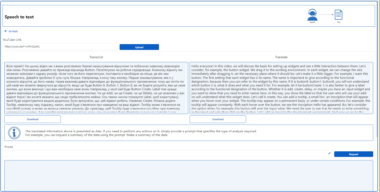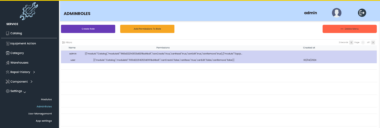WordPress MCP Server
A Model Context Protocol (MCP) server for WordPress integration, compatible with Windows, macOS, and Linux.
Overview
This MCP server enables interaction with WordPress sites through the WordPress REST API. It provides tools for creating, retrieving, and updating posts using JSON-RPC 2.0 protocol.
Installation
- Clone the repository
- Install dependencies:
npm install
- Build the project:
npm run build
Configuration
Add the server to your MCP settings file with environment variables for WordPress credentials:
{
"mcpServers": {
"wordpress": {
"command": "node",
"args": ["path/to/build/index.js"],
"env": {
"WORDPRESS_SITE_URL": "https://your-wordpress-site.com",
"WORDPRESS_USERNAME": "your-username",
"WORDPRESS_PASSWORD": "your-app-password"
}
}
}
}
The environment variables are:
- WORDPRESS_SITE_URL: Your WordPress site URL
- WORDPRESS_USERNAME: WordPress username
- WORDPRESS_PASSWORD: WordPress application password
You can also provide these credentials in the request parameters if you prefer not to use environment variables.
Available Methods
create_post
Creates a new WordPress post.
Parameters:
- siteUrl: (optional if set in env) WordPress site URL
- username: (optional if set in env) WordPress username
- password: (optional if set in env) WordPress application password
- title: Post title
- content: Post content
- status: (optional) ‘draft’ | ‘publish’ | ‘private’ (default: ‘draft’)
get_posts
Retrieves WordPress posts.
Parameters:
- siteUrl: (optional if set in env) WordPress site URL
- username: (optional if set in env) WordPress username
- password: (optional if set in env) WordPress application password
- perPage: (optional) Number of posts per page (default: 10)
- page: (optional) Page number (default: 1)
update_post
Updates an existing WordPress post.
Parameters:
- siteUrl: (optional if set in env) WordPress site URL
- username: (optional if set in env) WordPress username
- password: (optional if set in env) WordPress application password
- postId: ID of the post to update
- title: (optional) New post title
- content: (optional) New post content
- status: (optional) ‘draft’ | ‘publish’ | ‘private’
Security Note
For security, it’s recommended to use WordPress application passwords instead of your main account password. You can generate an application password in your WordPress dashboard under Users → Security → Application Passwords.
Example Usage
Using environment variables:
{
"jsonrpc": "2.0",
"id": 1,
"method": "create_post",
"params": {
"title": "My New Post",
"content": "Hello World!",
"status": "draft"
}
}
Without environment variables:
{
"jsonrpc": "2.0",
"id": 1,
"method": "create_post",
"params": {
"siteUrl": "https://your-wordpress-site.com",
"username": "your-username",
"password": "your-app-password",
"title": "My New Post",
"content": "Hello World!",
"status": "draft"
}
}
Requirements
- Node.js 20.0.0 or higher
- WordPress site with REST API enabled
- WordPress application password for authentication
License
MIT License - See LICENSE file for details
WordPress Integration Server
Project Details
- Leonelberio/the-wordpress-mcp-server
- MIT License
- Last Updated: 4/3/2025
Recomended MCP Servers
Claude can perform Web Search | Exa with MCP (Model Context Protocol)

SushiMCP is a dev tools MCP that serves context on a roll.
Model Context Protocol Server for Terrakube
The official home of the Presto distributed SQL query engine for big data
Organize your MCP servers in local workspaces, share them as Yet-Another-MCP through a single command

The Cursor10x MCP is a persistent multi-dimensional memory system for Cursor that enhances AI assistants with conversation context,...
 From vibe coding to vibe deployment. UBOS MCP turns ideas into infra with one message.
From vibe coding to vibe deployment. UBOS MCP turns ideas into infra with one message.






